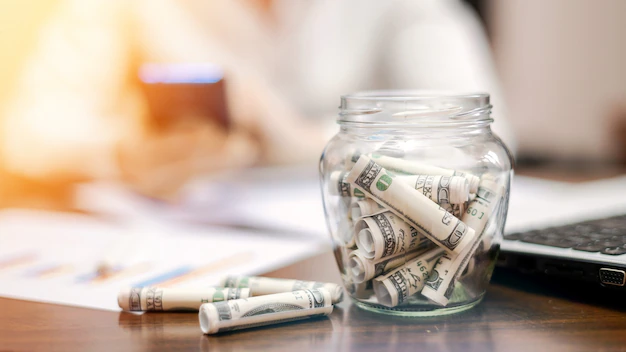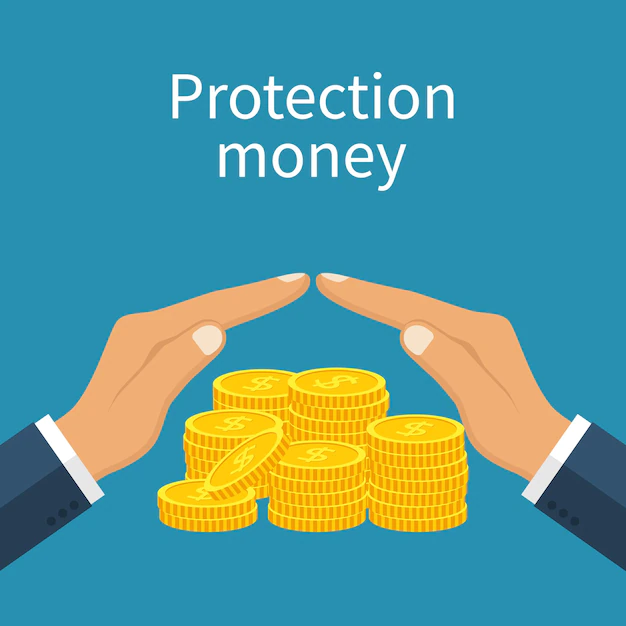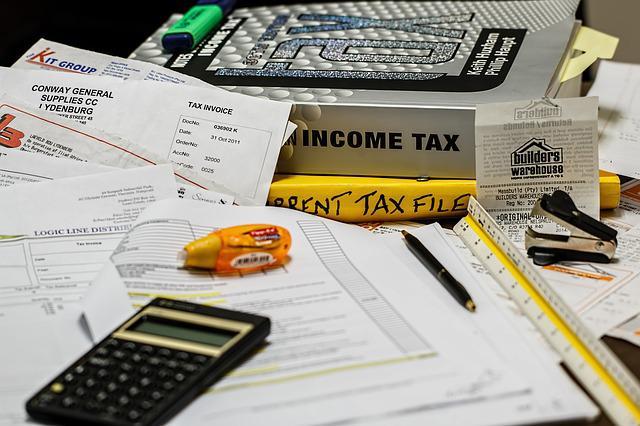When you sell an asset, it’s common for your bank to ask for a copy of the purchase agreement and other proof of your original purchase. They want to make sure that you paid the right amount for the property. If you didn’t pay full market value, then you may have fallen victim to capital gains tax. So lets read about How To Avoid Capital Gain Tax.
This is because when you buy or sell an asset, like real estate or stock, it will either increase or decrease your wealth. Lets find out How To Avoid Capital Gain Tax.
The difference between your adjusted cost and the new market value is what’s known as capital gains tax if the sale took place within a year of buying the property. However, if that same property was part of your continuous investment strategy as set out by CRA (Canada Revenue Agency), then no capital gains tax will be applied. Check below for more information on How To Avoid Capital Gains Tax.
What is capital gain tax? [Related to How To Avoid Capital Gain Tax]
Capital gains tax is a tax on the profit of selling an asset at a profit. It’s calculated by deducting the original cost of the asset from the sale price, then multiplying that number by your marginal tax rate. In other words, when you sell an asset and make a profit, you need to pay taxes on that amount.
The amount of tax paid will be different depending on your personal income bracket and province. You have to be careful when avoiding capital gain tax. So follow thoroughly this article about How To Avoid Capital Gain Tax.

Determining whether a gain has occurred & How To Avoid Capital Gain Tax
If you’re looking to avoid capital gains tax, then you can use the following points to determine whether a gain has been incurred.
1. Make sure that the sale of your property is for profit. In order to avoid capital gains tax, the sale of your asset must be for profit. For instance, if you were selling your car for $1,000 and it cost you $500 in repairs that are covered under warranty, then it would not be considered a profit-making event.
2. If there is no capital gains or loss on the sale of your property within one year from the date of purchase or acquisition of real estate, then no tax will be applied.
3. If you made money by using any part of the property as collateral for financing loans or credit card debt then any gain as determined by CRA will be taxed at a higher rate than other assets (e.g., 50% in some provinces).
4. When determining whether a gain has been incurred, start with when you bought an asset; if it was acquired before March 22nd 2004 and you held onto it until December 31st 2007 without selling it and did not acquire another asset during that time frame; then no taxes will apply on your investment (even if you sell it after 2007).
How to avoid capital gains tax
If you are selling and buy a property in the same year, then you will owe capital gains tax on any profit that you earn. There are a few strategies to avoid capital gains tax.
1. Don’t sell the property if your continuous investment strategy is set up by CRA.
2. Sell the property for more than what it’s worth.
3. Buy something else with the money from the sale and don’t pay any capital gains tax.
4. Cancel your RRSP (Registered Retirement Savings Plan) withdrawal.
5. If you sell for less than what it’s worth, don’t worry about paying capital gains tax – just make sure to report it on your taxes.
6. If there is a loss, sell for less than what it’s worth, keep reinvesting those losses in another purchase, and then cancel that withdrawal from your RRSP.
7. If the sale is unprofitable, don’t worry about paying any capital gains tax – just make sure to report it on your Taxes
1. The short answer: Be professional and cautious in your transactions
The short answer is that if you want to avoid capital gains tax, you need to be professional and cautious in your transactions. If you know that you’re going to sell a property within the year of purchasing it, keeping it in your portfolio is a good idea.
2. Avoid speculative investments
If you buy an asset solely for the purpose of increasing your wealth, then you are engaging in speculation. This is a risky form of investing because there’s no guarantee that your investment will increase in value. Instead, it could be worth nothing at all and incur capital gains tax. A good way to avoid speculative investments is to have a long-term, conservative investment plan that includes both risk and reward.
3. Don’t trade repeatedly within a short time frame
There are three ways to avoid capital gains tax: 1. Avoid trading within a short time frame, which can cause you to pay more in taxes 2. Keep your investment strategy consistent over time, and if that doesn’t work, then sell it off 3. Consider liquidating your investments when the market is down If you sold an asset for a gain at any point in the last year, there’s nothing you can do about it now. But it’s critical to consider how you could have avoided paying this tax in the first place.
4. Keep a record of all transactions and your portfolio information
It’s important to keep a record of all transactions to show proof of your original purchase. If you sold something, make sure you have the proof that you are actually selling an asset and not just taking cash out. And finally, when it comes to capital gains tax, the best way to avoid it is by holding onto your investments for longer periods of time.
5. Review your portfolio regularly and change your strategy accordingly
Capital gains tax is a common issue for investors. The best way to avoid capital gains tax is by reviewing your portfolio regularly and changing your strategy accordingly. If you have a property that has appreciated, then sell it and use the money to buy something else. It’s not just about avoiding capital gains tax; it’s also about maintaining a sustainable investment strategy.
6. Wait until you are ready to sell before doing so
If you’re going to sell a property, it makes sense to wait until it is the right time. For example, if you are planning on selling up and moving in the next year or two, then wait until you are ready to sell. By waiting, it will give your property more time for appreciation so that you can get a better price for it.

7. Capital Gain Tax 101
When you sell an asset, it’s common for your bank to ask for a copy of the purchase agreement and other proof of your original purchase. They want to make sure that you paid the right amount for the property. If you didn’t pay full market value, then you may have fallen victim to capital gain tax. This is because when you buy or sell an asset, like real estate or stock, it will either increase or decrease your wealth. The difference between your adjusted cost and the new market value is what’s known as capital gains tax if the sale took place within a year of buying the property. However, if that same property was part of your continuous investment strategy as set out by CRA (Canada Revenue Agency), then no capital gains tax will be applied.
8. Don’t Confuse Business Capital Gain With Personal Capital Gain
Capital gain applies to any asset that increases or decreases in value. This includes stocks, real estate, and other assets. When you sell an asset that has increased in value, then you’re moving up the economic ladder. If you sell an asset that has decreased in value, then you might be moving down the economic ladder. In order to avoid capital gain tax on your business investment strategy, it’s important that you know exactly what type of capital gain is applicable to your situation.
9. Use Tax Efficient Investment Strategy
When you sell an asset, it’s important to use a tax efficient investment strategy. If you’re looking for a way to avoid the capital gain tax, then consider investing in stocks that are registered in Canada or elsewhere. This will allow you to purchase the stocks and avoid paying any capital gains taxes.
10. Diversify Your Assets
It’s crucial to diversify your assets to reduce your exposure to capital gains tax. If you’re invested in real estate, you may want to invest in stocks and bonds. This way, if one asset goes up in value while the other one stays stagnant, then you won’t be subject to the additional capital gains tax. It’s important to remember that small capital gains are taxed at a lower rate than larger ones, so it may be worth investing more in higher risk investments that can potentially increase in value over time.
11. Only Invest In Things You Can Afford To Lose
If you’re not sure whether or not the property you are selling is part of your continuous investment strategy, it may be worth hiring a qualified accountant to review your finances. The last thing you want to do is end up owing money on capital gains taxes that could have been avoided.
12. Reduce Debt As Much As Possible
If you’re struggling to pay off your debt, then there are many ways for you to reduce your loan balance. Many people who struggle with debt use the snowball method, which involves paying down the highest interest rate first. If you’re struggling with your credit card debt, then it may be beneficial to ask your bank if they offer a 0% APR loan. This is a great way to get out of credit card debt without having to make lengthy payments. You can also consider transferring assets that aren’t earning any income and putting them towards your loan balance. Another option is setting up an RRSP (Registered Retirement Savings Plan) or TFSA (Tax Free Savings Account). With these accounts, you can put away money tax-free and take advantage of growth increases on your investment portfolio in retirement.
13. Know The Difference Between Taxable And Tax-Free Investment
Real estate is a tax-free investment in Canada, meaning that you don’t have to pay capital gains tax when you sell your property. If you are buying an asset, like stocks or bonds, it will be taxed at the purchase price. You will pay this tax when the asset is sold. If you bought your real estate before April 1st, 2010, then you are considered to have invested in “Canadian Qualifying Real Property” which means that there is no capital gains tax for the year. If you bought after April 1st, 2010, then any profits from selling your property must be reported as taxable capital gains.
The long answer: Bottom line
Capital Gains Tax is the tax the government imposes when you sell a property for more than what you paid for it. If you paid less for the property than what its new market value, then no capital gains tax is applied. However, if you bought that same property within a year of buying it, then there will be a capital gains tax applied to your profit.
If you’re selling your investment property, make sure that all of your records are in order and will help show that you made your purchase at or below market value. You’ll also need to prove that this was an investment and not just a personal residence. This can be done through bank statements, accounting records, and other documents that show your long-term-investment strategy with CRA.
If you have invested money in the market, chances are that sooner or later you will have to pay capital gains tax. In other words, when you sell any of your stocks, bonds, real estate or other investments for a profit, you’ll be required to pay a tax on that profit. While most people tend to see taxes as something bad, in fact they are an important part of the financial system.
The good news is that there are ways to lessen the impact of capital gains taxes and even save money. In this blog post we will outline some of those strategies so that they can help you avoid paying an excessive amount of capital gains tax on your investments.
Capital gains taxes can be a particularly nasty tax subject to deal with. But luckily, there are ways to avoid paying capital gains taxes. Here are some expert advice and tricks you need to know if you’re planning to sell your stocks or other investment property in the future.
Frequently Asked Questions

Can you get out of paying capital gains tax?
If you’re a resident of Canada and have held the property for more than a year, you may be able to avoid capital gains tax. The CRA says that residents can only get out of paying capital gains tax if they have used the property as part of their continuous investment strategy.
This means that they must use it to build their assets or make money while they are investing. If this is the case, then no capital gain tax will be taken out of your account. Keep in mind that the CRA reserves the right to audit your holdings and determine whether or not you have been eligible for exemption from capital gains tax. They do not want people to abuse any loopholes in order to avoid paying what they owe.
What is the 2 out of 5 year rule?
The 2-out-of-5-year rule states that you must have lived in your home for at least two years out of the last five years before the sale date to qualify to sell it, regardless of whether those years were consecutive or not. It doesn’t matter when you lived in the home on the sale date.
Can you reinvest to avoid capital gains?
If you sold an asset for more than you originally paid for it, then you will have to pay capital gain tax. But if you reinvest the difference into the same asset for a year, then no capital gains taxes will be applied. For example, if you bought a property for $100,000 and sold it for $110,000 in one year’s time, your gain would be $10,000.
If you reinvested this money back into the same property within a year’s time before selling it again at that price point, then no capital gains tax would be applied. In most cases, CRA requires that you sell an asset within five years of buying it to avoid any further tax consequences. To avoid capital gains taxes on your investments, try to make sure that your purchases are made with cash rather than deposited in a bank account where interest may accrue on the money.
What is the income limit to avoid capital gains tax?
$40,400
In 2021, an individual with $40,400 or less in taxable income will not pay any capital gains tax.
What expenses can be deducted from capital gains tax?
You can reduce the amount of tax you pay on your profits from selling your home by the sum of your listing expenses—including real estate agent fees, title insurance premiums, legal fees, advertising expenditures, administrative fees, and escrow charges—as well as inspection fees.